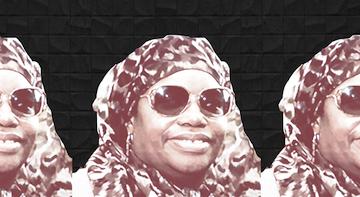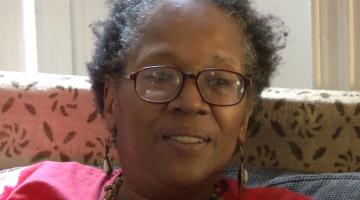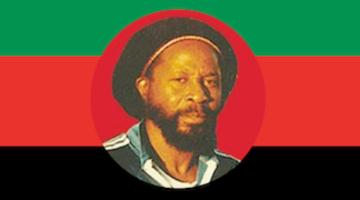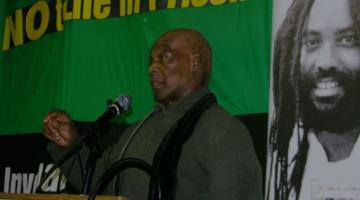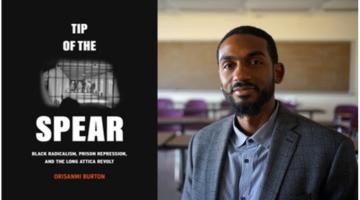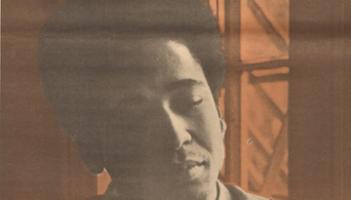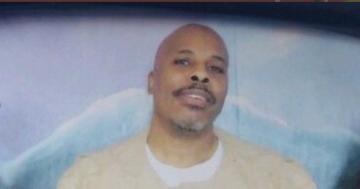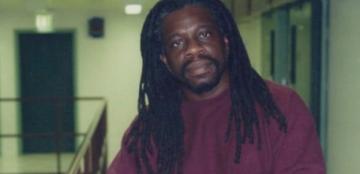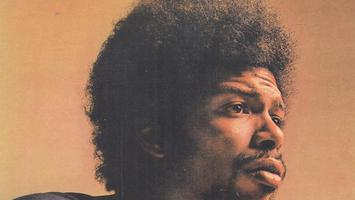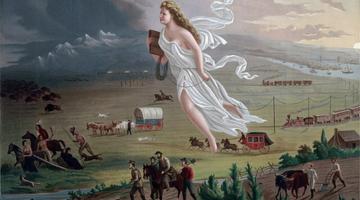Former political prisoner Jalil Muntaqim is still not treated as a free man. In this case, the State University of New York at Brockport succumbed to political pressure and moved his in-person appearance online. In this country speech and thought are not as free as we are led to believe.
This Wednesday, April 6, 2022, long-time freedom fighter and former political prisoner of war, Jalil Muntaqim was set to speak at the State University of New York - Brockport. However, over the past few weeks this event has come under fire by the usual suspects: the police, right wing elected officials and the dependent corporate media apparatus.
Those familiar with the plantation logics that drive U.S. policing are unlikely to be surprised at this latest example of scare tactics, censorship and high drama coming from the internal colonies’ occupation forces. The empty accusations of “anti-semitism” will likewise read as par for the course, given how regularly this kind of rhetoric is deployed in right-wing attempts to silence dissident voices. What may puzzle even some of the more seasoned readers of copaganda, however, is how desperately those militating against Muntaqim’s upcoming address are attempting to banish one of the terms being used to describe him: former political prisoner.
Perhaps this, too, should come as no surprise. After all, one of the many myths of U.S. exceptionalism is its pathological claim not to hold any political prisoners within its vast, world-leading plantation complex of over 2 million caged human beings. In fact, it was Jalil Muntaqim who lit the spark that would ultimately cost Andrew Young his position at the UN over 40 years ago when he suggested that a French journalist ask the ambassador at a news conference in Paris if political prisoners existed in the U.S. His reply of “perhaps thousands,” proved too near to reality for imperial comfort and he was relieved of his ambassadorship in short order. Still, the almost religious character of the police and their enablers’ rabid refusal of the term as regards Muntaqim does beg the question, what is a political prisoner?
A Political Prisoner of War is someone detained for their beliefs, color, sex, ethnic origin, language, or religious creed, regardless of whether the individual has advocated the use of violence and includes those detained without trial or prosecuted as a form of persecution. To further politicize this definition, it is one whose imprisonment is directly based upon a conscious effort to resist against continued racist genocide and colonialism. This is and has continued to be the struggle of those who rose to these challenges in the context of the Black Liberation Movement.
Jalil Muntaqim has remained a target of the state since the unlawful COINTELPRO efforts of J. Edgar Hoover’s FBI ensured that he would not set foot on “free” U.S. soil until his elder years back when he was still in his teens. We can see this clearly in the countless acts of repression from his capture back in 1971 up to the present moment: from the tragicomically bad TV movie aired on CBS in 1985, “Badge of the Assassin”, in which Muntaqim and his comrades are painted as cartoonish, blaxploitation-style gangsters, to the 11 parole board denials despite an undeniable record of positive influence and service while inside, to the attempts at having him re-incarcerated for filling out voter registration documents given to him by state officials as part of his release process.
Like many freedoms fighters who have come before him, he has continually come under fire while attempting 1) to politically educate the masses on the systems of capitalism, imperialism and oppression that plague Black, Brown, Indigenous and poor communities and 2) to provide a roadmap for all oppressed peoples to live by in order to upend the systems of incarceration, brutality and resource-hoarding which benefit a small few.
During his time in prison, he was regularly isolated from the general population, tortured at the hands of guards and persecuted as a direct result of him teaching a class to fellow incarcerated folks on Black History, Civil/Human Rights and the Legacy of the Black Panther Party. All of this is reminiscent of current right-wing attempts to banish Critical Race Theory, Ethnic Studies and LGBTQ rights from our curricula.
The state and the university have joined forces to suppress Muntaqim’s voice and right to free speech. We encourage readers to establish study groups for the month of April and read Muntaqim’s book, We Are Our Own Liberators, to gain a better understanding of the voice and perspective SUNY affiliates seek to silence. It can be found for free online at https://tinyurl.com/WAOOLPDF. It will also be republished and back in circulation in the coming weeks.
As for SUNY Brockport and this Wednesday’s scheduled conversation, it would appear that the silencing continues, with the $1,300 grant to Muntaquim rescinded, the in-person event moved online and the registration link as of the time of writing, curiously, being listed as “closed”. The community is not submitting passively to the Police Benevolent Association (PBA) and their bully moves, however, with a student-organized demonstration which took place on Monday, April 4. Those not held captive by the terms of struggle as defined by the contemporary slavepatrol may want to insist that SUNY Brockport allow ‘History of Black Resistance, U.S. Political Prisoners & Genocide: A Conversation with Jalil Muntaqim’ to be viewed by all who seek to do so, and keep the forces of reaction from yet another victory in their ongoing war against our freedom of thought.
The Spirit of Mandela (SoM) Writing Committee produces, gathers & distributes material pertaining to the genocidal patterns and practices of the U.S. domestically and worldwide. The committee formed in the wake of the guilty verdict on all counts of genocide passed down by 9 international jurists October 25, 2021 at the U.N. Connect with SoM Writing Committee at: spiritofmandelamedia@gmail.com,Twitter @inthespiritt.
www.tribunal2021.com www.spiritofmandela.org

